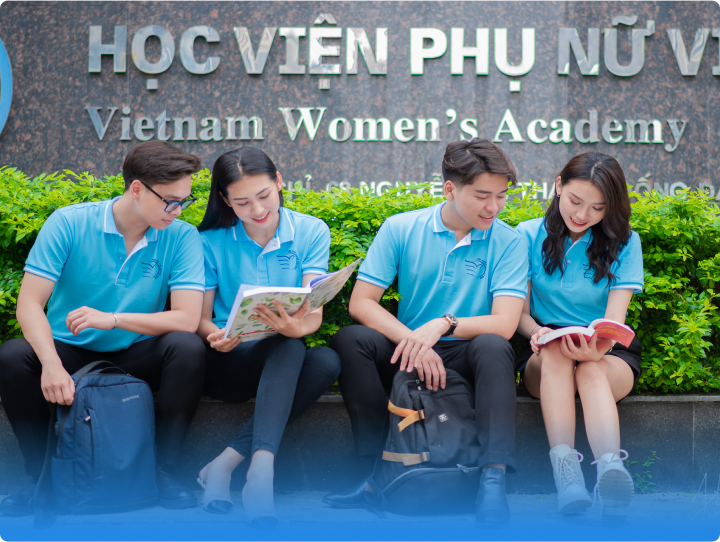– Total credits: 122 credits, excluding English courses (14 credits), physical education (3 credits), and national defense education (8 credits).
– The credits are distributed by the following courses:
- General education: 22 credits, including 22 compulsory credits;
- Basic core courses: 19 credits, including 15 compulsory credits and 04 elective credits;
- Major core courses and concentration courses: 69 credits, including 56 compulsory credits and 12-13 elective credits;
- Graduation internship and graduation thesis: 12 credits.
– The proportion of practical credits to the total number of credits is: 36/121 (30%)
1. General education (22 credits ) – excluding physical education, national defense education and English
1.1. Political theory (11 credits)
1.2. Social sciences (8 credits)
1.3. English (14 credits)
1.4. Information Technology (3 credits), physical education, national defense education
2. Professional educational courses (99 credits)
2.1. Basic core courses (19 credits)
2.1.1. Compulsory courses (15 credits)
2.1.2. Elective courses (4 credits) (Select 2 out of 6 courses)
2.2. Major core course (69 credits)
2.2.1. Compulsory courses (40 credits)
2.2.2 Concentration courses (16 credits)
(select 1 out of 2 concentration courses)
- Concentration courses in Administrative Law (16 credits)
- Concentration courses in Civil Law (16 credits)
2.2.3. Elective supplementary courses (12 -13 credits) (select 6 out of 16 courses)
2.4. Graduation internship and graduation thesis or equivalent (12 credits)

 Tiếng Việt
Tiếng Việt



